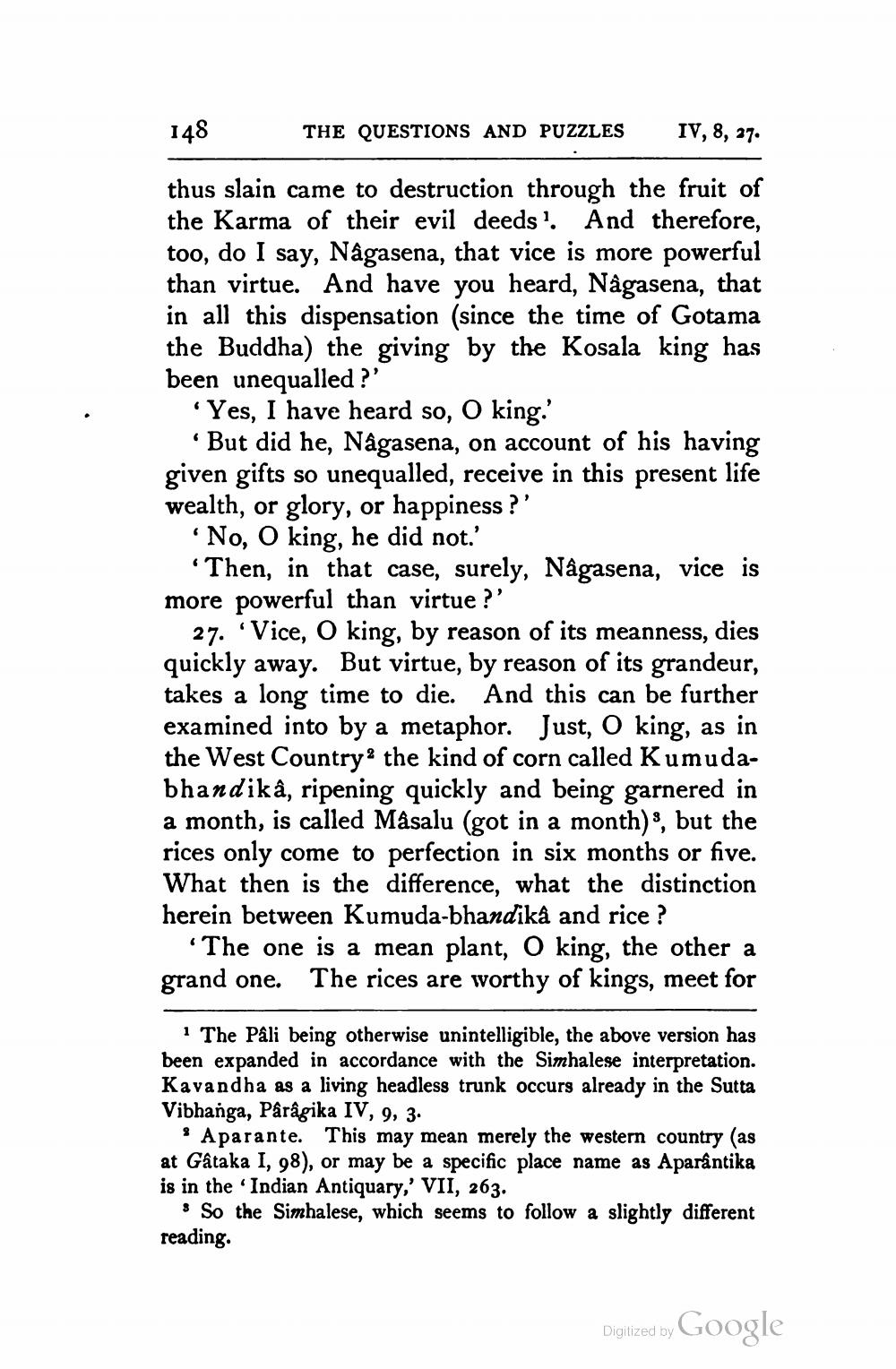________________
148
THE QUESTIONS AND PUZZLES
IV, 8, 27.
thus slain came to destruction through the fruit of the Karma of their evil deeds!. And therefore, too, do I say, Nagasena, that vice is more powerful than virtue. And have you heard, Nagasena, that in all this dispensation (since the time of Gotama the Buddha) the giving by the Kosala king has been unequalled ?'
Yes, I have heard so, O king.' • But did he, Nagasena, on account of his having given gifts so unequalled, receive in this present life wealth, or glory, or happiness ?'
'No, O king, he did not.'
*Then, in that case, surely, Någasena, vice is more powerful than virtue?'
27. Vice, O king, by reason of its meanness, dies quickly away. But virtue, by reason of its grandeur, takes a long time to die. And this can be further examined into by a metaphor. Just, o king, as in the West Country: the kind of corn called Kumudabhandikâ, ripening quickly and being garnered in a month, is called Måsalu (got in a month), but the rices only come to perfection in six months or five. What then is the difference, what the distinction herein between Kumuda-bhandikâ and rice ?
"The one is a mean plant, o king, the other a grand one. The rices are worthy of kings, meet for
9,
3.
1 The Pali being otherwise unintelligible, the above version has been expanded in accordance with the Simhalese interpretation. Kavandha as a living headless trunk occurs already in the Sutta Vibhanga, Paragika IV, 9, 3.
* Aparante. This may mean merely the western country (as at Gâtaka I, 98), or may be a specific place name as Aparântika is in the Indian Antiquary,' VII, 263.
So the Simhalese, which seems to follow a slightly different reading.
Digitized by Google




